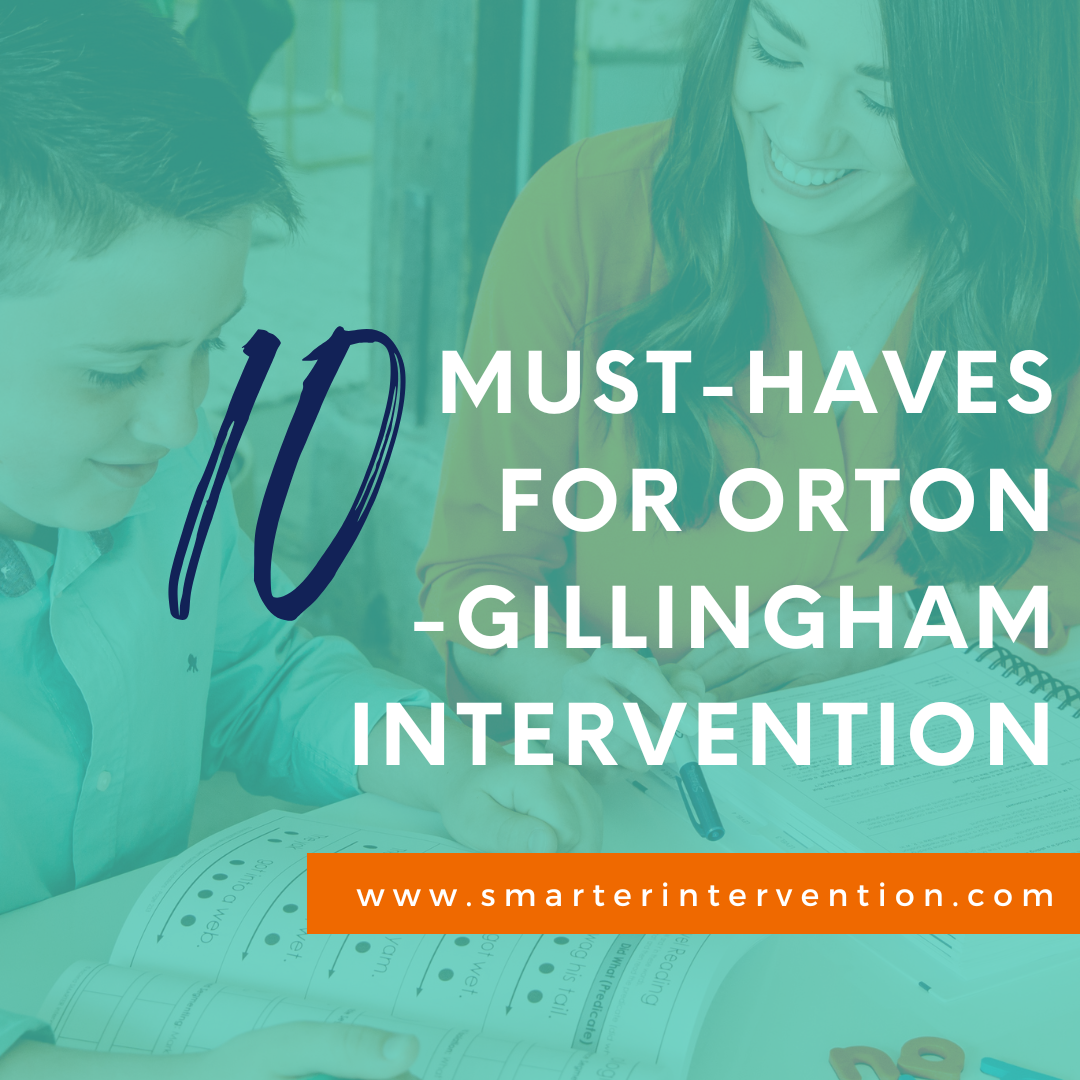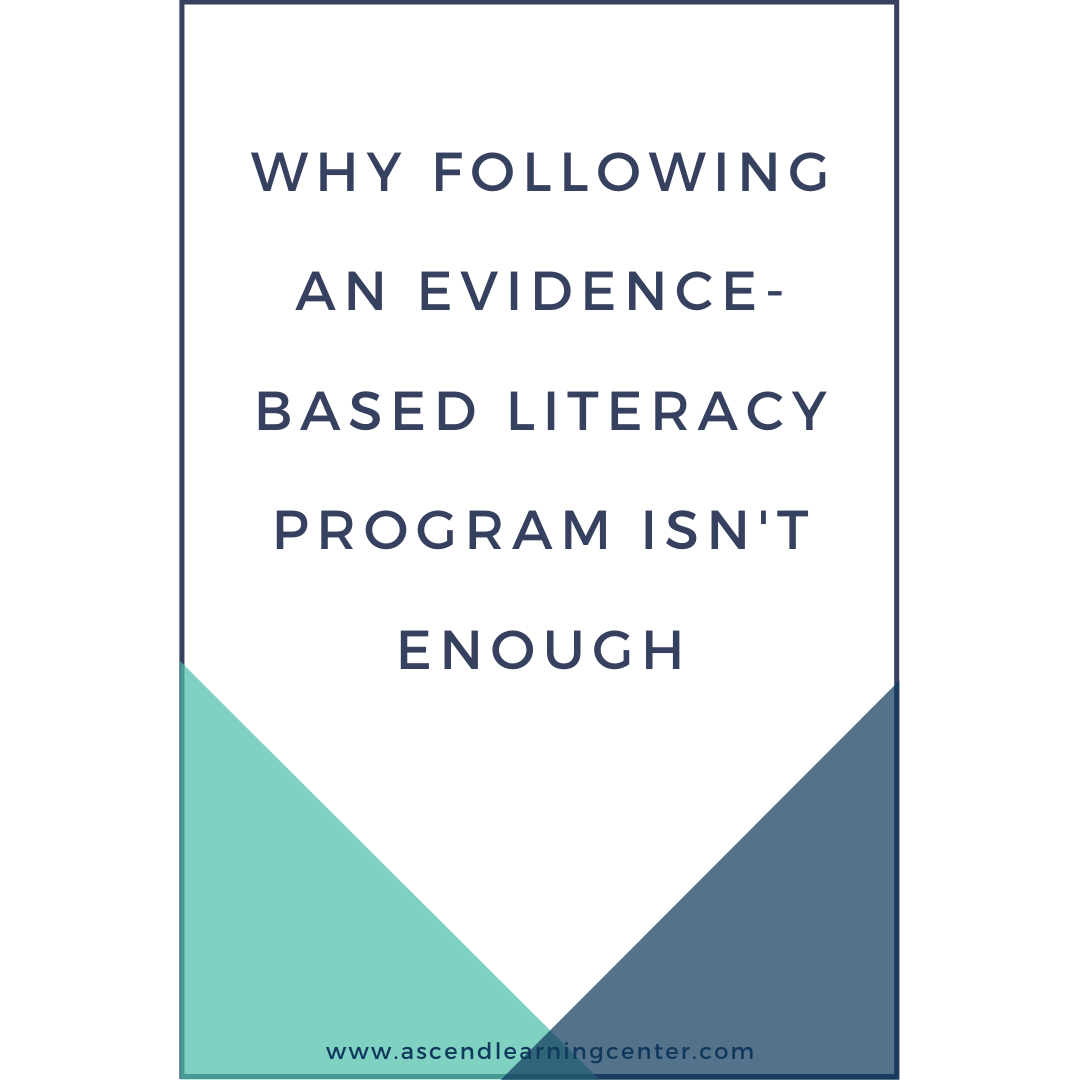Science-based literacy resources and articles
for families, educators and schools
Search by Category:
Categories
- Advocacy
- Authentic Literature
- Business
- Comprehension
- Data Tracking
- Differentiation
- Dyslexia
- Evaluation and Assessment
- Executive Functioning
- Games & Activities
- Helping My Child At Home
- How To
- IEP/504 Plan
- Lesson Planning
- Math
- Online Intervention
- Organization
- Parents
- Phonics
- Phonological Awareness
- Reading Comprehension
- Reading Fluency
- Research
- SLP
- Spelling
- Vocabulary
- Writing
How to Lesson Plan for Your Literacy Intervention
An effective lesson planning process has the potential to transform your year.
For us educators, lesson planning can reduce stress because we have everything outlined. It also saves us a ton of time in the long run.
But did you know that lesson planning also benefits our students? When we have clear plans, students begin understanding routines, and the increased cohesion between our lesson components helps them get better results!
Keep reading to learn the 5 step process to creating effective literacy lesson plans AND to grab our FREE lesson planning guides!
How to Support Spelling - Scoop Spelling Strategy
We are so excited to share this resource with you today! Scoop Spelling changed my life! This strategy brought such relief to my students who struggled to spell multi-syllable words correctly and instantly boosted their confidence! This strategy is so simple to use!
First, make sure that your students are solid on syllabication; what syllables are and how to count them. This knowledge is the key to Scoop Spelling. If a student knows or can hear how a word breaks apart into syllables, then they can Scoop Spell!
10 Must Haves for Orton-Gillingham Intervention
So I don't know about all of you, but when I started out delivering OG intervention I was trying to figure what supplies and materials I absolutely needed for my classroom and small group intervention. I knew I would need writing materials, reading supplies, games, activities, word lists, the list went on and on. We’ve put together a list of Orton-Gillingham necessities to help make your life a little easier!
How to Use 1 Reading Activity to Target 5 Literacy Skills
There are so many different factors that play into learning to read and write effectively. It can often feel overwhelming because it seems like we need to hit on all of these skills separately and hope that it all comes together! This isn’t the case. With just one activity, you can hit on multiple skills and help your students grow!
Do I Need to Teach Phonological Awareness Skills?
To teach, or not to teach phonological awareness…this is the question (especially because research seems to be ever-changing in this area)!!
Check out this blog for answers to understand its importance, target specific skills, and integrate PA seamlessly into your lessons. Explore why phonological awareness matters for all ages and how to make it feel cohesive.
Should I Teach Syllable Blending?
You might be wondering when it would be important to teach syllable blending. Is this a skill students even need?
The answer to that question is yes. This is a skill that students, in fact, need. But there are specific times when teaching this skill will be most important. Keep reading to learn more!
How to Use SOR to Support Students Who Struggle with Word Recognition & Comprehension
We’re so glad you’re here. Now over the last month, we’ve been talking all about how to use the Science of Reading and effective reading instruction strategies to support students with varying needs. We’ve talked about supporting students who are reading on grade level, supporting students who struggle with decoding and word recognition, we’ve talked about supporting students who struggle with comprehension, and today we’re going to talk about our last group of students, students who struggle with word recognition and comprehension. Click through to learn more!
Time Spent Testing My Students is Taking Away From Instruction Time (or is it?)
It can absolutely feel like all the time we spend evaluating could be better spent actually TEACHING our students the skills, right?
But the truth is - it is a critical component of our instruction.
While we are just as eager to jump into concepts with our students and get them the instruction we KNOW they will need, we have to recognize that assessments and data should be providing us incredibly valuable information that sets the trajectory for where we need to go.
How to Teach Reading Comprehension using a Research-Based Approach
Now if you’re like us and you’re obsessed with the science of reading, you may already know that there is a very systematic and structure in which you can teach phonics to help give struggling and beginning readers the tools they need to be successful (and hey - no shame if not, you can check out our phonics blog too). But, did you know there is also really clear set of reading comprehension skills that students need to be successful comprehenders?!
How to Teach Reading Fluency using a Research-Based Approach
When we think about reading intervention, reading fluency is definitely one of the first things that come to mind. Today, we are breaking down exactly what reading fluency is and the ACTUAL skills we should be targeting.
How to Teach Spelling
Alright friends, many of you have been asking us this question and we’re excited to share exactly how we teach spelling to our struggling readers and writers!
Here’s the truth - spelling is tricky!
And it’s usually one of the last abilities to fully progress for our struggling students. We tell students and parents that we expect growth to evolve in phases. We typically start at the sound level (making sure that students can associate sounds to letters), then we move up to the syllable level, then to the word level, phrase level, sentence level, and then finally the passage level.
The Magic in Literacy Intervention
Here’s the deal, structured and systematic literacy intervention will get your students 90% of the way there. The true magic lies in the last 10%.
Why Following an Evidence-Based Literacy Program Isn't Enough
If you know us well by now, you know that we are huge proponents of evidence-based (research-based) literacy intervention. It is absolutely CRITICAL that we be following evidence-based practices especially to get our struggling readers to grade level.
But here’s the issue - and it’s a big issue because nobody is really talking about it.
It’s not enough alone.
How to Progress Monitor Online
If you have been with us for a while, then you know we get super excited when it comes to data. We love using it to write treatment plans for students, to monitor growth, to assess whether or not the student needs something different, etc. We use data to make every decision in our intervention and we wouldn’t be able to run our practice effectively without it.
So, when we transitioned to seeing students online, the natural question was how in the world we’d be able to assess and progress monitor virtually.
The Biggest Mistake We're Making in Literacy Intervention
This is a bold claim - we understand. But here’s the thing we’ve noticed after years of intervention work and years of working with hundreds of literacy interventionists.
The culture of literacy intervention has built up this idea that we have to be perfect to get started. This idea that if we don’t do everything just so …. our students will suffer. It’s led to this idea that there is a “perfect way” to implement effective literacy intervention.
The #1 Reason Students Aren't Generalizing Their Literacy Skills
One of the biggest problems we’ve seen over the years is that many students receive solid, research-based intervention, they learn the skills but then are unable to take those skills they’ve learned in the context of a structured and systematic approach and apply it to what they need to be doing in the classroom. They are unable to apply to their classroom reading assignments, their classroom writing assignments.
The Materials You Need to Keep Online Lessons Engaging
Today - we wanted to share some of the physical materials we’re finding helpful in keeping our online sessions engaging. Now, most of our students are doing AMAZINGLY well at adapting to the online space.
How to Differentiate Within a Framework
While programs can and often will give suggested guidelines on where to start a student, how quickly to move through the program, and how to instruct the material, it is still your space to use clinical/professional judgement and to fill in concepts and review as needed. Trust your intuition - you know your students best!



















